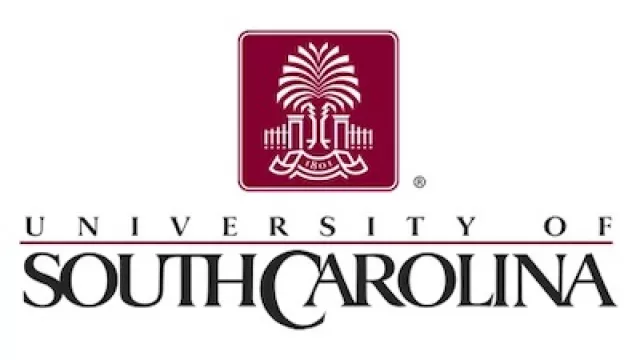Table of Contents
Kamala Harris comedy roast denied funding by University of South Carolina student senate

Edward Crawford / Shutterstock.com
Proud Boys co-founder Gavin McInnes (left) and former Breitbart editor Milo Yiannopoulos hosted a roast of Kamala Harris at the University of South Carolina last night.
The University of South Carolina has taken a noble stand in defense of free speech by refusing to cancel a controversial comedy roast of Vice President Kamala Harris. Unfortunately, the USC student senate didn’t follow suit.
USC student group Uncensored America hosted former Breitbart editor Milo Yiannopoulos and Proud Boys co-founder Gavin McInnes for yesterday’s event, which went off without a hitch. But, as a result of viewpoint discrimination, they did so without funding from the student senate.
Uncensored America had requested $3,577 to host the event — a request which the finance committee had already approved, confirming the group had followed all relevant rules. But the full senate denied the request 27-10. As FIRE reminded the USC student senate yesterday, this violates the Constitution.
To protect the free exchange of ideas on campus, the First Amendment requires student governments to fund student groups in a viewpoint-neutral manner. This ensures expressive events, like political roasts, are not stifled because their content offends others. When considering funding requests, student senators can look at viewpoint-neutral factors such as the event venue, timing, expected audience, and cost—but they cannot veto events because they dislike the ideology of the groups or speakers.
“The First Amendment supersedes any kind of political viewpoint that we have, with some very few exceptions. And I can disagree with someone and then still defend their right to be able to say something.”
During the debate over the event’s funding, some student senators stood in defense of free speech.
“Uncensored America has broken no rules, nor violated any law,” said student Sen. Camden Kaye. “The First Amendment supersedes any kind of political viewpoint that we have, with some very few exceptions. And I can disagree with someone and then still defend their right to be able to say something.”
This sentiment perfectly encapsulates the First Amendment legal standard and the principles behind it. But others disagreed.
One student senator said the sexual connotations in the event promotional materials — presumably a reference to the title, The Roast of Cumula Harris — violated university rules for on-campus advertising and a state law about exposing minors to sexual content. In fact, neither the alleged USC policy or the state law exist. USC does not regulate campus advertising based on sexual content. And while state law bars disseminating sexually explicit material to minors that meets the standard for obscenity for minors, the law does not extend to the clumsy sexual innuendo in the roast’s title.
Errantly citing the landmark Supreme Court case Citizens United v. Federal Election Commission (2010), another senator argued that funding a political event is protected speech and therefore the student government would be “inherently taking a political stance,” which would violate its duty to remain politically neutral. However, Citizens United doesn’t concern political neutrality, and it did not alter the authority or obligation of USC and the student senate to allocate funds to student organizations. Rather, it upheld the First Amendment right to comment on political issues close to elections. The decision is irrelevant here.
As FIRE wrote to USC:
As an agency of a public university, the actions of USC’s student government . . . must comply with the First Amendment, which forbids USC from imposing content- or viewpoint-based restrictions on the distribution of student activity fee funds to student groups. USC’s authority to impose mandatory student fees that support student groups carries with it the burden to ensure the viewpoint-neutral distribution of such funds.
By denying Uncensored America’s funding request in an attempt to remain politically neutral, the student senate in fact chose to allocate funding on the basis of the group’s viewpoint — in clear violation of the First Amendment. Uncensored America has already announced that it plans to file a lawsuit against USC for violating its First Amendment rights. The senate must immediately reverse its decision and approve Uncensored America’s funding request.
FIRE congratulates USC for not bowing to censors who wanted this event canceled. But we hope that USC’s student senate will realize it cannot reject funding requests on the basis of viewpoint.
Recent Articles
Get the latest free speech news and analysis from FIRE.

FIRE's 2025 impact in court, on campus, and in our culture

The trouble with banning Fizz

VICTORY: Court vindicates professor investigated for parodying university’s ‘land acknowledgment’ on syllabus



